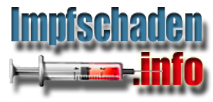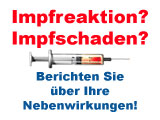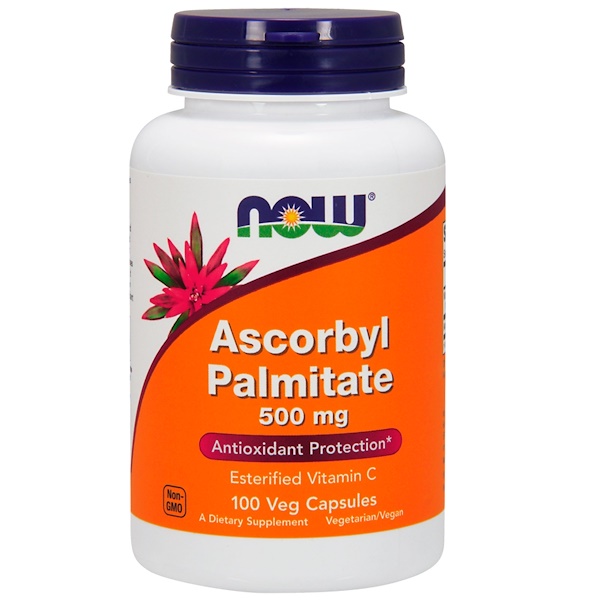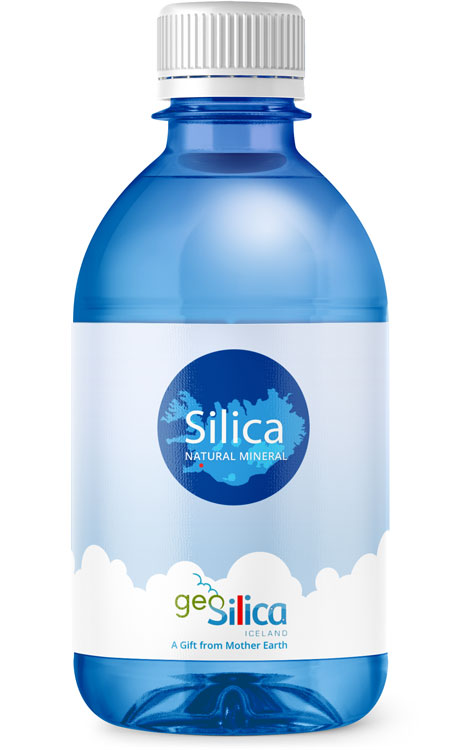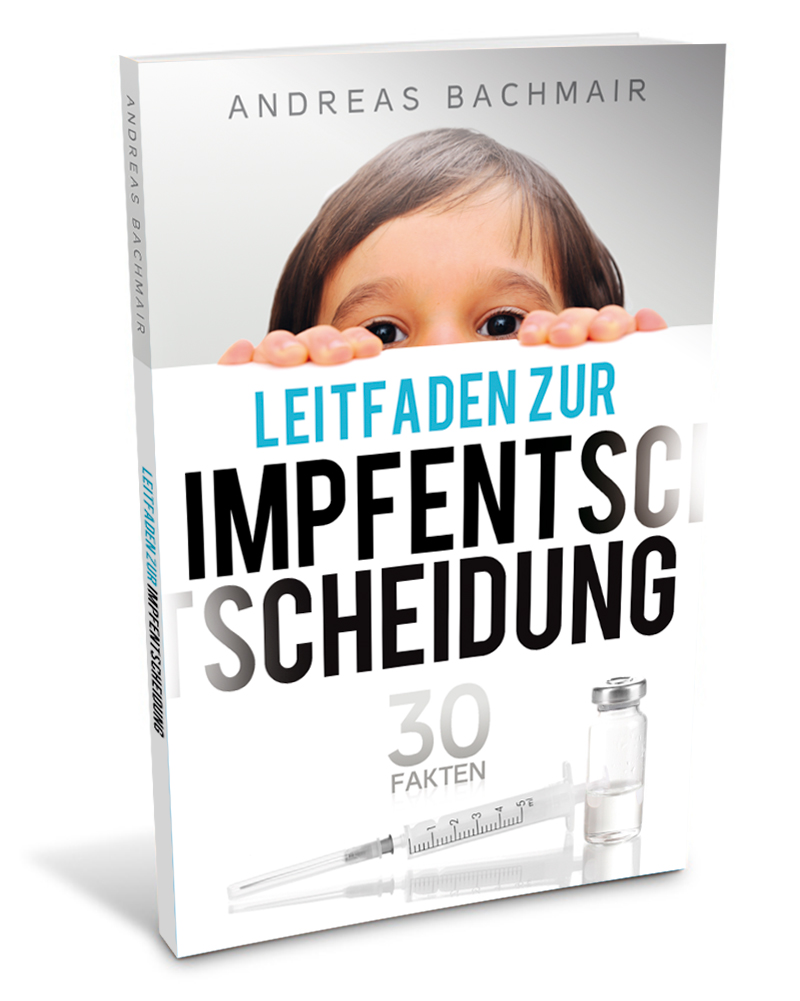What Wakefield Would Have Told Oregon Health Committee That Cancelled Hearing (To Avoid Hearing Him!)
Below is a letter from Dr. Andrew J. Wakefield to Oregon State Senator Elizabeth Steiner Hayward. In addition to the letter, you can read the testimony he intended to deliver in conjunction with an SB442 hearing that was cancelled after he was due to present testimony. Many people are willing to lash out at and denigrate Dr. Wakefield, few have the nerve to hear him speak in person. We wrote about Senator Steiner Wayward and her hypocrisy regarding healthcare choice recently.
--
Dear Senator Steiner Hayward,
It has come to my attention that, in an attempt to limit parental rights over vaccine choice you have defamed me and recklessly misled your colleagues and the people of Oregon. Specifically, you are quoted as stating that, "...not only was [my] original research debunked by other studies," but also that "[I] had admitted to faking all the data in [my] study."
I attach the testimony that I had proposed to present to the information gathering session of the Oregon Senate Health Committee. This includes a bibliography of the many papers supporting my original research and reference to the CDC whistleblower, Dr. William Thompson who, with his colleagues, concealed evidence of the causal association between MMR vaccine and autism for 13 years. This document confirms the falsity of the first part of your statement.
The second part - my alleged admission to faking all (or indeed any of) the data - is egregious, reckless, and demonstrably untrue. Using this statement to mislead the current debate on vaccine choice, as you have done, is disgraceful. I have passed the matter over to my lawyers for their opinion. In the meantime I will encourage the people of Oregon to have you removed from office at the earliest opportunity through the due democratic process.
Yours sincerely,
Dr. Andrew J Wakefield MB,BS.
--
Testimony of Dr. Andrew J. Wakefield MB,BS.
March 9, 2015
Introduction.
In support of Bill SB442 there has been a series of false claims and assumptions. I will illustrate this statement by reference to four matters.
First, my colleagues and I have been accused of ethical misconduct in the investigation of children with autism while at the RFH, London. I have been accused of fraud by journalist Brian Deer and the British Medical Journal.
Most bizarrely, and as a measure of how incontinent these claims against me have become, I have been accused in the Oregon media of actually admitting to this fraud, thereby acknowledging 1. that there was fraud – which there was not – and 2. confessing to such fraud, which is entirely false.
I have never, at any stage, been part of, or committed scientific fraud or ethical misconduct. The allegations of ethical and research misconduct against and my colleagues and against me came before the English High Court in the appeal of Professor Walker-Smith. The judge utterly demolished the case against him – which was very much the same as the case against me – in effect, finding the General Medical Council guilty of incompetence, and worse, bias. Prof Walker-Smith was immediately and completely exonerated. For financial reasons, I was unable to appeal. The allegations of research fraud are dealt with in an independent investigation of the original Lancet study by Dr. David Lewis Ph.D. who was a senior scientist at the EPA and an acknowledged expert in research fraud. His investigation and conclusions are to be found in the book, Science for Sale.1 He confirms that what fraud there was, was on the part of journalist Brian Deer and Dr. Godlee, Editor of the BMJ. Efforts to bring these persons to justice for malicious defamation in Texas, failed only on jurisdictional grounds. If there is any doubt, I urge you to read his book and the affidavits publically available at Travis County Court. Since 1998, the original discovery of intestinal disease in children with autism has been confirmed time after time (Appendix 1). The link between MMR vaccine and autism brings me to my second point; vaccine safety.
1
Lewis D. Science for Sale. (NY) 2014 Skyhorse Publishing Vaccine Safety
1. At the turn of the century the CDC were charged with investigating the possibility that there are subgroups of children at risk of autism from MMR.
In 1999 I proposed that the MMR-autism risk may, in part, be a function of age of exposure:2 the younger you get the vaccine the greater the risk. Why? Because, the younger you get measles, the greater the risk of an adverse outcome. This idea was shared with the CDC. They tested the hypothesis in children in the Atlanta Metro area and they found it to be true.
They found beyond a shadow of a doubt that two subgroups of children were at risk: children who were in effect developmentally normal to age 1, and black boys. They concealed this risk for 13 years and deceived everyone, putting millions of children at risk.3 In the words of Dr. William Thompson, the senior scientist responsible for this study, for the data analysis, and for disclosure of the fraud: “I was involved in deceiving millions of tax payers regarding the potential negative side effects of vaccines.”4
I have filed a formal complaint with the Office of Research Integrity detailing the fraud. It is provided for you to examine. The matter is currently under investigation by the US Congress with the prospect of hearings later this year.
2. Third, there have been no studies of the safety of the vaccine schedule in children anywhere in the world.
The significance of this is driven home by the following example: in Europe, the Committee for Medicinal Products for Human Use, requested a review of neurological reactions in children who received Prevenar 13 (a pneumococcal vaccine) at the same time as Infarix Hexa a 6-in-1 vaccine.5
2
Wakefield AJ andMontgomery SM. Autism,viral infection and measles mumps rubella vaccination. Israeli Medical Association Journal 1999;1:183-‐187
3
DeStefano F et al. Age at First Measles-‐Mumps-‐Rubella Vaccination in Children With Autism and School-‐Matched Control Subjects: A Population-‐Based Study in Metropolitan Atlanta. Pediatrics. 2004;113:259-‐266
4
Email from Dr. Thompson to Dr. Hooker and Dr. Wakefield.
5
Initiative Citoyenne Press Release http://ddata.over-‐blog.com/3/27/09/71/2012-‐2013…
Prevenar [sic] 13 PSUR 04 – Response to RSI Neurological Events PFIZER CONFIDENTIAL
Page 1 Prevenar [sic] 13 Pneumococcal saccharide conjugated vaccine, 13 valent
adsorbed PSUR 04
–
Response to Question on Neurological events http://ddata.over-‐blog.com/xxxyyy/3/27/09/71/2012-‐2013/emea-‐responses–Prevenar-‐13-‐Pfizer-‐Confidential.pdf
During a two-year period between 2009 and 2011 a total of 1,691 cases of adverse events were reported after the Prevnar 13 vaccine, including 312 neurological reactions, many serious.
The documents describe how 9% of those who had received Prevnar 13 alone suffered neurological reactions while of those who had received Prevnar 13 plus a six-in-one vaccine on the same day, 34% experienced neurologic reactions, nearly 4-times the rate. More is worse, not better.
There exists a state of what I believe to be deliberate ignorance about the adverse interactions between vaccines.
My fourth point:
Vaccine efficacy.
Merck are currently in Federal Court in Pennsylvania facing charges of defrauding the US Government in relation to their MMR vaccine, for which they have a monopoly in the US.
Faced with the fact that their mumps vaccine is far less effective that they claim in the product insert, they were threatened with loss of their license. They had two choices: one, to improve the vaccine in the interests of children or two, to falsify the laboratory testing in the interests of Merck. According to court documents, they chose to do the latter. According to Merck scientists they cheated on multiple levels, finally resorting to simply changing the data to give them the result they needed. It was a business decision. In mitigation Merck claim that it is not a matter of vaccine safety.
Yes it is. A mumps vaccine that does not work is a dangerous vaccine. Why? Because by the time you are a teenager the vaccine has stopped working. Mumps is a minor disease in children but a much more serious disease in boys after puberty, in particular, when it can cause testicular
inflammation and sterility. Merck’s defective vaccine has made mumps a more dangerous disease with multiple documented outbreaks of mumps in highly vaccinated adults. Profit was put before the safety of the public.
In summary, aside from the inevitable violation of parental rights, it is unthinkable that in the face of fraud - fraud that has genuinely been admitted to - by scientists in government and the vaccine industry, that there should be any consideration given to increasing the stringency of
vaccine mandates.
Thank you.
Appendix
1.
Support for the discovery of gastrointestinal disease in autism:
The following is provided by way of illustrating the science that supports the
original discovery of intestinal disease in children with autism, first reported in the Lancet Paper.
Key Replication studies at the Royal Free Hospital**
Case series showing bowel disease in autism by independent groups##
Invited articles*#
1. Wakefield AJ., Puleston J. Montgomery SM., Anthony A., O’Leary J.J., Murch
SH Entero-colonic encephalopathy, autism and opioid receptor ligands.
Alimentary Pharmacology & Therapeutics. 2002;16:663-674
2. **Torrente F., Machado N., Perez-Machado M., Furlano R., Thomson M., Davies
S., Wakefield AJ, Walker-Smith JA, Murch SH. Enteropathy with T cell
infiltration and epithelial IgG deposition in autism. Molecular Psychiatry.
2002;7:375-382
3. **Torrente F, Anthony A. Focal-enhanced gastritis in regressive autism with
features distinct from Crohnʼs disease and helicobacter Pylori gastritis. Am J
Gastroenterol 2004;99:598-605.
4. *#Wakefield AJ. The Gut-Brain Axis in Childhood developmental Disorders.
Journal of Pediatric Gastroenterology and Nutrition. 2002;34:S14-S17
5. *#Wakefield AJ. Entero-colitis, Autism and Measles Virus. Consensus in Child
Neurology. 2002;6:74-77
6. **Ashwood P, Anthony A, Pellicer AA, Torrente F, Wakefield AJ. Intestinal
lymphocyte populations in children with regressive autism: Evidence for
extensive mucosal immunopathology. Journal of Clinical Immunology,
2003;23:504-517
7. **Ashwood P, Anthony A, Torrente F, Wakefield AJ., Spontaneous mucosal
lymphocyte cytokine profiles in children with regressive autism and
gastrointestinal symptoms: Mucosal immune activation and reduced counter
regulatory interleukin-10. Journal of Clinical Immunology. 2004:24:664-673
8. **Ashwood P, Wakefield AJ. Immune activation of peripheral blood and mucosal
CD3+ lymphocyte cytokine profiles in children with autism and gastrointestinal
symptoms. J Neuroimmunol. 2006;173:126-34
9. **Anthony A, Ashwood P., Wakefield AJ. The significance of ileo-colonic
lymphoid nodular hyperplasia in children with autistic spectrum disorder.
European Journal of Gastroenterology and Hepatology 2005;17:827-36
10. **Furlano RI, et al. Colonic CD8 and gamma delta T-cell infiltration with
epithelial damage in children with autism. J Pediatr. 2001;138:366-72.
11. **Wakefield AJ, Ashwood P, Limb K, Anthony A. The significance of ileocolonic
lymphoid nodular hyperplasia in children with autistic spectrum disorder.
Eur J Gastroenterol. Hepatol. 2005;17:827-36.
12. *#Wakefield AJ. Enterocolitis, autism and measles virus. Mol Psychiatry. 2002;7
Suppl 2:S44-6.
13. *#Wakefield AJ, et al. Autism, viral infection and measles-mumps-rubella
vaccination. Israeli Med Assoc J. 1999 Nov;1(3):183-7.
14. Wakefield AJ. MMR vaccination and autism. Lancet. 1999;354:949-50.
15. Afzal N, et al. Constipation with acquired megarectum in children with autism.
Pediatrics. 2003;112:939-42.
16. ##Balzola F, Barbon V, Repici A, Rizzetto M. Panenteric IBD-like disease in a
patient with regressive autism shown for the first time by the wireless capsule
enteroscopy: another piece in the jigsaw of this gut-brain syndrome? Am J Gastro.
2005; 979-981. (Italian confirmation of intestinal disease)
17. ##Balzola F, et al. Autistic enterocolitis: confirmation of a new inflammatory
bowel disease in an Italian cohort of patients.
Gastroenterology.2005;128:Suppl.2;A-303. . (Italian confirmation of intestinal
disease)
18. ##Balzola F, et al. Beneficial behavioural effects of IBD therapy and
gluten/casein-free diet in an Italian cohort of patients with autistic enterocolitis
followed over one year. Gastroenterology, 2006:30; suppl. 2 S1364 A-21. .
(Italian confirmation of intestinal disease)
19. Buie T, et al. Evaluation, diagnosis, and treatment of gastrointestinal disorders in
individuals with ASDs: a consensus report. Pediatrics. 2010;125 Suppl 1:S1-18.
20. Buie T, Fuchs GJ 3rd, Furuta GT, Kooros K, Levy J, Lewis JD, Wershil BK,
Winter H. Recommendations for evaluation and treatment of common
gastrointestinal problems in children with ASDs. Pediatrics. 2010;125 Suppl
1:S19-29.
21. Cade R, et al. Autism and schizophrenia: intestinal disorders. Nutritional
Neuroscience 3: 57-72, 2000.
22. Cade JR, et al. Autism and schizophrenia linked to malfunctioning enzyme for
milk protein digestion. Autism, Mar 1999.
23. ##Chen B, Girgis S, El-Matary W. Childhood autism and eosinophilic colitis.
Digestion. 2010;81:127-9. (Canadian confirmation of intestinal disease)
24. DeFelice ML, et al. Intestinal cytokines in children with pervasive developmental
disorders. Am J Gastroenterol 2003;98:1777-82:
25. D'Eufemia P, et al. Abnormal intestinal permeability in children with autism. Acta
Paediatr. 1996;85:1076-9.
26. ##Galiatsatos P, et al. Autistic enterocolitis: fact or fiction? Can J Gastroenterol
2009;23:95-98. (Canadian confirmation of intestinal disease)
27. Genuis SJ, Bouchard TP. Celiac Disease Presenting as Autism. J Child Neurol.
2009
28. ##Gonzalez L, Lopez K, Navarro D, Negron L, Flores L, Rodriguez R, Martinez
M, Sabra A. Endoscopic and Histological Characteristics of the digestive mucosa
in autistic children with gastrointestinal symptoms. Arch Venez Pueric Pediatr
69;1:19-25 (Venezuelan confirmation of intestinal disease)
29. ##Horvath K et al. Gastrointestinal abnormalities in children with autistic disorder.
J Pediatr. 1999;135:559-63. (US confirmation of intestinal disease)
30. Horvath K, Perman JA. Autism and gastrointestinal symptoms. Curr
Gastroenterol Rep.2002;4:251-8.
31. ##Horvath K, Perman JA. Autistic disorder and gastrointestinal disease. Curr Opin
Pediatr.2002;14:583-7.
32. Kawashima H et al. Detection and sequencing of measles virus from peripheral
mononuclear cells from patients with inflammatory bowel disease and autism.
Dig Dis Sci. 2000;45:723-9.
33. Kushak R, Winter H, Farber N, Buie T. Gastrointestinal symptoms and intestinal
disaccharidase activities in children with autism. Abstract of presentation to the
North American Society of Pediatric Gastroenterology, Hepatology, and
Nutrition, Annual Meeting, October 20-22, 2005, Salt Lake City, Utah.
34. D’Eufemia P, Celli M, Finnochiaro R, et al. Abnormal intestinal permeability in
children with autism. Acta Pediatrica. 1996;85:1076-1079.
35. Horvath K, Collins RM, Rabsztyn R et al. Secretin improves intestinal
permeability in autistic children. J. Ped. Gastroenterol. Nutr. 2000;S31:31
36. De Magistris L, Familiari V, Pascotto A, et al. Alterations of the intestinal barrier
in patients with autism spectrum disorders and in their first-degree relatives. J
Pediatr Gastroenterol Nutr. 2010;51:418-24.
37. Knivsberg AM, Reichelt KL, Hoien T, Nodland M. A randomised, controlled
study of dietary intervention in autistic syndromes. Nutr Neurosci. 2002;5:251–
61.
38. ##Krigsman A, Boris M, Goldblatt A et al. Clinical Presentation and Histologic
Findings at Ileocolonoscopy in Children with Autistic Spectrum Disorder and
Chronic Gastrointestinal Symptoms. Autism Insights 2010;2:1-11 (US
confirmation of intestinal disease)
39. McGinnis WR. Mercury and autistic gut disease. Environ Health Perspect.
2001;109:A303-4.
40. Melmed RD, Schneider CK, Fabes RA. Metabolic markers and gastrointestinal
symptoms in children with autism and related disorders. J Pediatr Gastroenterol
Nutr 2000:31;S31-32.
41. Nikolov, RN, et al, Gastrointestinal symptoms in a sample of children with
pervasive developmental disorders. J Autism Dev Disord. 2009;39:405-13.
42. Parracho HM, Bingham MO, Gibson GR, McCartney AL. Differences between
the gut microflora of children with autistic spectrum disorders and that of healthy
children. J Med Microbiol. 2005;54:987-91.
43. Quigley EM, Hurley D. Autism and the gastrointestinal tract. Am J Gastroenterol.
2000;95:2154-6.
44. Reichelt KL, Knivsberg AM. Can the pathophysiology of autism be explained by
the nature of the discovered urine peptides? Nutr Neurosci. 2003;6:19-28.
45. Reichelt KL, et al. Probable Etiology and Possible Treatment of Childhood
Autism. Brain Dysfuntion 1991;4:308-319.
46. Reichelt KL, Knivsberg AM. The possibility and probability of a gut-to-brain
connection in autism. Ann Clin Psychiatry. 2009;21:205-11.
47. Sandler RH, et al. Short-term benefit from oral vancomycin treatment of
regressive onset autism. J Child Neurol. 2000;15:429.
48. Schneider CK, Melmed RD, Barstow LE, Enriquez FJ, Ranger-Moore J, Ostrem
JA. Oral Human Immunoglobulin for Children with Autism and Gastrointestinal
Dysfunction: A Prospective, Open-Label Study. J Autism Dev Disord. 2006 Jul
15.
49. Song Y, Liu C, Finegold SM. Real-time PCR quantitation of clostridia in feces of
autistic children. Appl Environ Microbiol. 2004;70:6459-65.
50. Taylor B, Miller E, Lingam R, Andrews N, Simmons A, Stowe J. Measles,
mumps, and rubella vaccination and bowel problems or developmental regression
in children with autism: population study. BMJ. 2002;324:393-6.
51. Valicenti-McDermott M, et al. Frequency of gastrointestinal symptoms in
children with autistic spectrum disorders and association with family history of
autoimmune disease. J Dev Behav Pediatr. 2006;27:S128-36.
52. Valicenti-McDermott MD, McVicar K, Cohen HJ, Wershil BK, Shinnar S.
Gastrointestinal symptoms in children with an autism spectrum disorder and
language regression. Pediatr Neurol. 2008;39:392-8.
53. Welch MG, Welch-Horan TB, Anwar M, Anwar N, Ludwig RJ, Ruggiero DA.
Brain effects of chronic IBD in areas abnormal in autism and treatment by single
neuropeptides secretin and oxytocin. J Mol Neurosci 2005;25:259-74.
54. White JF. Intestinal pathophysiology in autism. Exp Biol Med. 2003 Jun;228
(6):639-49.
55. Whiteley P, Shattock P. Biochemical aspects in autism spectrum disorders:
updating the opioid-excess theory and presenting new opportunities for
biomedical intervention. Expert Opin There Targets. 2002 Apr;6(2):175-83.
56. Lucarelli S, Frediani T, Zingoni AM, et al Food allergy and infantile autism.
Panminerva Med. 1995;37:137-41.
57. Whitely P, Haracopos D, Knivsberg AM, Reichelt KL, Parlar S, Jacobsen
J, Seim A, Pedersen L, Schondel M, Shattock P. The ScanBrit randomised,
controlled, single-blind study of a gluten- and casein-free dietary intervention for
children with autism spectrum disorders. Nutr Neurosci. 2010;13:87-100.
58. H Jyonouchi, Geng L, Ruby A, Reddy C, et al. Dysregulated Innate Immune
Responses in Young Children with Autism Spectrum Disorders: Their
Relationship to Gastrointestinal Symptoms and Dietary Intervention. J Pediatr
2005;146:605-10
59. Jyonouchi H. Food Allergy and Autism Spectrum Disorders: Is There a Link?
Curr Allergy Asthma Rep. 2009;9:194-201
60. Jass, JR. The intestinal lesion of autistic spectrum disorder. European Journal of
Gastroenterology & Hepatology: 2005;17:821-822
61. James B Adams et al Gastrointestinal flora and gastrointestinal status in children
with autism -- comparisons to typical children and correlation with autism
severity BMC Gastroenterology 2011;11:22
62. Williams BL et al. Impaired Carbohydrate Digestion and Transport and Mucosal
Dysbiosis in the Intestines of Children with Autism and Gastrointestinal
Disturbances PLoS One 2011;6:e24585
63. Walker S, Fortunado J, Gonzalez L, Krigsman A. Identification of Unique Gene
Expression Profile in Children with Regressive Autism Spectrum Disorder (ASD)
and Ileocolitis. PLoS ONE 8(3): e58058. doi:10.1371/journal.pone.0058058
- Details
- Zuletzt aktualisiert: 09. März 2015
